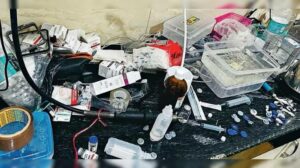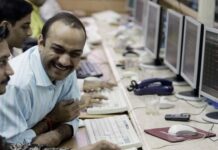The Delhi Police recently breakthroughs Fake Cancer Drug Racket in west Delhi’s Moti Nagar exposes a nefarious operation dealing in counterfeit cancer and chemotherapy drugs. The perpetrators, led by Viphil Jain from Baghpat, filled empty vials with a mere ₹100 anti-fungal medicine and marketed them as life-saving cancer drugs, fetching exorbitant prices ranging from ₹1 to 3 lakh per vial.
Table of Contents
The Deceptive Operation Unveiled
Undercover investigations revealed the elaborate network of individuals involved in the illicit trade, targeting not only patients in Delhi and nearby regions but also extending their reach to international markets such as China and the US. Viphil Jain, with no formal education, orchestrated the scheme, leveraging his experience working in a medical store in Seelampur was a part of the Fake Cancer Drug Racket.
Key Players and Operations
Jain, along with his associates Parvez and Neeraj Chauhan, exploited the high demand and cost of cancer medications by refilling empty vials with Fluconazole, an anti-fungal drug. Neeraj Chauhan, equipped with a medical transcription background, aided in attracting clients with promises of affordable chemotherapy injections, even running a medical tourism company to lure international patients.
Police Action and Seizures
After a rigorous two-year operation, the Delhi Police arrested seven individuals, including Suraj from West Bengal, who facilitated the manufacturing of fake drugs. Authorities seized three cap-sealing machines, cash, and hundreds of empty vials from the manufacturing site. Legal actions are underway, charging the accused with selling adulterated drugs, cheating, forgery, and criminal conspiracy.
LATAM Airlines Flight Horror: Unraveling the Sydney-Auckland Incident
Impact and Awareness
This shocking revelation serves as a stark reminder of the dangers posed by counterfeit medications and the importance of stringent regulatory measures. It underscores the need for public awareness and vigilance against such fraudulent practices that jeopardize the health and lives of patients. Let this expose be a wake-up call for stricter enforcement and vigilant scrutiny of pharmaceutical operations to safeguard the well-being of all.
Unveiling the Scam: Delhi Police Busts Fake Cancer Drug Racket
The Deceptive Operation Unveiled
The Delhi Police’s recent breakthrough in west Delhi’s Moti Nagar exposes a nefarious operation dealing in counterfeit cancer and chemotherapy drugs. The perpetrators, led by Viphil Jain from Baghpat, filled empty vials with a mere ₹100 anti-fungal medicine and marketed them as life-saving cancer drugs, fetching exorbitant prices ranging from ₹1 to 3 lakh per vial.
Operation Discovery and Investigation
The elaborate scheme came to light after a meticulous investigation by the Delhi Police’s crime branch. Special commissioner Shalini Singh revealed how individuals from various backgrounds colluded to exploit vulnerable cancer patients. Viphil Jain, despite lacking formal education, masterminded the operation, leveraging his experience in the medical field.
Citizenship Amendment Act (CAA) Rules: Impact and Implications
Key Players and Operations
Jain, along with his associates Parvez and Neeraj Chauhan, exploited the high demand and cost of cancer medications by refilling empty vials with Fluconazole, an anti-fungal drug. Neeraj Chauhan, equipped with a medical transcription background, aided in attracting clients with promises of affordable chemotherapy injections, even running a medical tourism company to lure international patients.
Police Action and Seizures
After a rigorous two-year operation, the Delhi Police arrested seven individuals, including Suraj from West Bengal, who facilitated the manufacturing of fake drugs. Authorities seized three cap-sealing machines, cash, and hundreds of empty vials from the manufacturing site. Legal actions are underway, charging the accused with selling adulterated drugs, cheating, forgery, and criminal conspiracy.
Consequences and Patient Safety
Beyond the financial ramifications and legal repercussions, the discovery of this fake drug racket underscores the profound impact on patient safety. Individuals battling cancer already face immense physical, emotional, and financial burdens. Falling victim to counterfeit medications not only jeopardizes their health but also erodes trust in the healthcare system.
The exploitation of vulnerable patients highlights the urgent need for robust safeguards and regulatory measures to protect consumers from such egregious scams. Authorities must prioritize the enforcement of stringent regulations and increase public awareness to prevent similar incidents in the future. Patients must remain vigilant, seek treatment from reputable sources, and report any suspicious activities to safeguard their well-being.
Frequently Asked Questions (FAQ’s)
1. How did the fake drug racket operate?
– The racket involved filling empty vials with inexpensive anti-fungal medication and selling them as high-priced cancer drugs, deceiving patients and reaping huge profits.
2. Who were the masterminds behind the operation?
– Viphil Jain from Baghpat orchestrated the scheme, assisted by associates Parvez and Neeraj Chauhan, who exploited their backgrounds in the medical field to perpetrate the fraud.
3. What actions have been taken by the authorities?
– The Delhi Police arrested seven individuals involved in the racket, seized manufacturing equipment, cash, and empty vials. Legal proceedings are underway against the accused.
4. What impact does this revelation have on public health?
– It highlights the grave risks associated with counterfeit medications and underscores the need for heightened awareness and regulatory measures to protect patients from such scams.
5. How can patients ensure the authenticity of their medications?
– Patients should purchase medications from licensed pharmacies, verify the credentials of healthcare providers, and report any suspicious activities to authorities.
6. What measures are being taken to prevent similar incidents in the future?
– Authorities are enhancing surveillance and enforcement efforts, conducting public awareness campaigns, and implementing stricter regulations on pharmaceutical operations.














